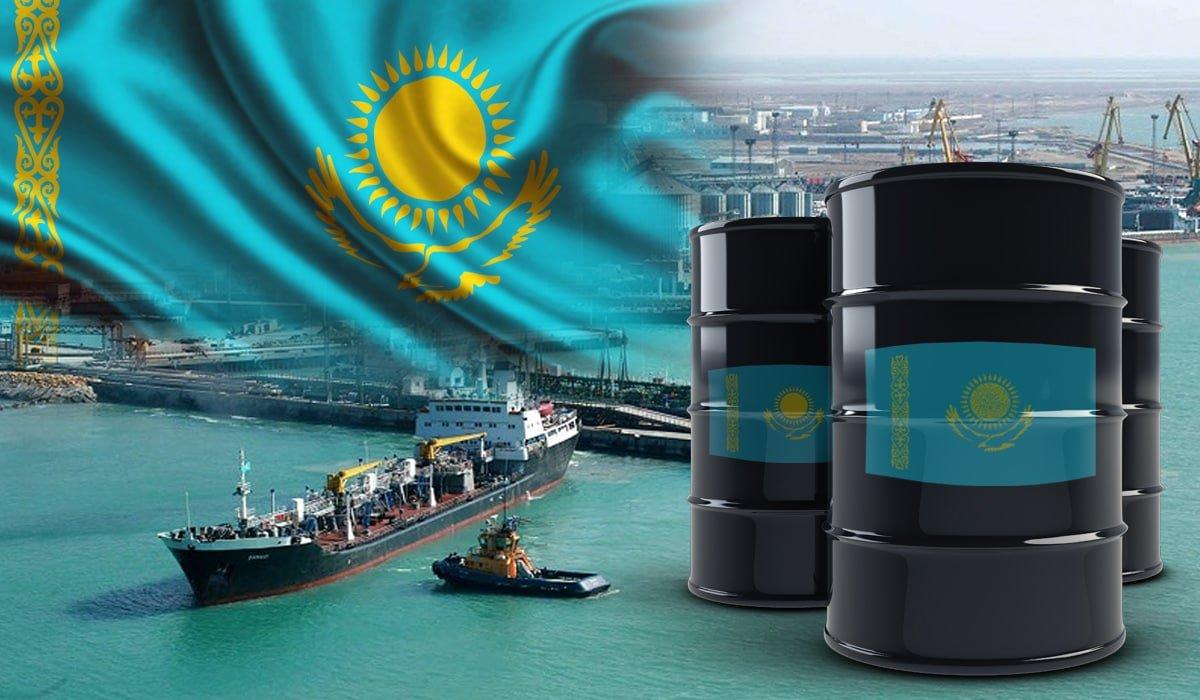Azerbaijan emerges as key link in Trans-Caspian route Enhancing connectivity and trade
Since the beginning of 2024, global commodity markets have been experiencing a similar period of instability in demand and volatile energy prices as last year. Amid the conflicts unleashing in the Middle East, which have intensified since the end of last year, the risks to the stability of oil transport to Europe and Southeast Asia have soared, and this uncertainty is increasing the interest in safer and more stable supplies of hydrocarbons from the region of Central Asia and Azerbaijan. According to last year's results, the Trans-Caspian route has achieved a significant increase in the volume of oil supplies. Moreover, Kazakhstan has recently outlined plans to expand transiting oil through Azerbaijan.
In January and February of this year, oil prices for benchmark grades were quite volatile, with spot prices and futures quotes for Brent in particular fluctuating in the range of $76 to $82 per barrel. Today, the price of April Brent futures on London's ICE Futures exchange was $79.45/bbl. These developments are taking place against the backdrop of the next round of confrontation between the members of the OPEC+ cartel, eyeing to keep prices low, and the US, Canada and the EU, keen to increase supply and make commodities cheaper. The correlation between the growth of oil reserves in the US, the lack of demand momentum in the EU and concerns about the slowdown in economic growth in China, the world's largest oil importer, are among the factors limiting the growth of the energy market.
On the other hand, stronger-than-expected US statistical data contributed to the stability of demand in the oil market: the ISM Services index of business activity in the US services sector (ISM Services), published the previous day, rose to 53.4 points in January, up from the previous figures.
The firm stance of the OPEC+ monitoring committee, which refused to recommend an increase in production at its recent meeting despite the intensification of geopolitical confrontation in the strategically important Middle East region, was also a positive factor for the oil market.
It should be noted that at the end of last year, analysts predicted that oil prices would rise in early 2024 amid the Israel-Hamas standoff. However, this conflict has had little impact on the plans of oil-producing countries in the region.

Today, the situation is much more complicated due to the ongoing attacks by the Yemeni Houthis on shipping in the Red Sea. Obviously, the pressure on transport and logistics chains has an impact on both the cost of freight and insurance services and the frequency of tanker traffic through the Suez Canal, with negative implications for the oil market as a whole. "The main concern is the possibility of this conflict widening or involving Iran, which could seriously disrupt oil supplies through the Strait of Hormuz," Tariq Zahir, managing director of Tyche Capital Advisors, said recently.
Regardless of how soon the situation surrounding the Houthi attacks on merchant ships in the strategic Red Sea region will be resolved, according to numerous expert assessments, with the outbreak of the Russian-Ukrainian war and the activation of pro-Iranian proxy groups across the region since last year, Western interest in diversifying hydrocarbon supplies has increased significantly. Increasing oil supplies from the Central Asian region through Azerbaijan via the Trans-Caspian route is one of the best options being considered.
This energy corridor has been active since the 1990s. In particular, economic cooperation between Azerbaijan and Turkmenistan is based on the transit of hydrocarbons, fuels and oil products. Since 2010, Turkmen oil has been transported to world markets by tanker and then via the Baku-Tbilisi-Ceyhan (BTC) pipeline, and a total of about 35 million tonnes of Turkmen raw materials have been exported in recent years. In 2023, for example, more than 3 million tonnes of Turkmen oil passed through the BTC, almost 18% more than in the corresponding period of the previous year.
Baku and Astana have long been partners in energy and transport projects in the Caspian Sea. Their cooperation in the oil sector is also developing dynamically. In the past, millions of tonnes of Kazakh oil were transhipped through Azerbaijani ports and pipelines. However, after the energy crisis of 2014-2017 and the fall in oil prices, this route was at a standstill. The situation took another turn in 2022 when the Caspian Pipeline Consortium (CPC) was suspended following the Russia-Ukraine conflict and sanctions imposed on it by the West. The 1,511-kilometre pipeline, with a capacity of 67 million tonnes of crude oil per year, is crucial for Kazakhstan as it carries around three-quarters of Kazakhstan's oil exports, mainly from the Tengiz and Kashagan fields, via the Novorossiysk marine terminal. Faced with problems in transhipping crude oil, Astana has sought to diversify energy transit through the region, and Azerbaijan has been chosen as an alternative route.
JSC NC KazMunayGas signed an agreement with the State Oil Company of Azerbaijan (SOCAR) to transport more than one million tonnes of Kazakh oil in response to Kazakh President Kasym-Jomart Tokayev's order to increase the volume of oil transported along the Central Corridor. Transhipment began in April last year. Every month, Azerbaijan receives 12 to 14 tankers of oil, the majority of which (1.057 million tonnes) is crude oil produced at the Tengiz field. According to the latest data from KazTransOil, in 2023 a total of 1.392 million tonnes of oil (Tengiz and other producers in Kazakhstan) will be transhipped via BTC, 5.5 times more than in 2022.
And apparently, these volumes will multiply in the next two years: according to recently published data, the Kazakh government plans to boost BTC transit to 1.5 million tonnes in 2024 and 3 million tonnes in 2025. In addition, Astana and Baku are currently negotiating the transport of up to 3 million tonnes of Kazakh oil per year through the Baku-Supsa pipeline. Specialists from both countries are calculating the technical characteristics of this 837-kilometre oil pipeline, which has been mothballed in recent years, from the Sangachal terminal near Baku to the Georgian port of Supsa. If an agreement is reached, the pipeline is expected to carry oil from the Kashagan field. Last year, Azerbaijan made an offer to Kazakhstan to transport about 5 million tonnes of oil through the Baku-Supsa pipeline (the maximum capacity of the pipeline is 7 million tonnes).

Azerbaijan and its partners in the BTC and Baku-Supsa pipeline systems (operated by BP) are interested in increasing oil transit volumes. In recent years, oil production in Azerbaijan has been declining for objective reasons - slower production from domestic oil fields, including Azeri-Chirag-Gunashli (ACG), and the subsequent drop in the volume of local transit through oil pipelines. This trend has not changed so far, and according to the most recent forecasts published by the Azerbaijani government, oil production in 2027 is expected to be just over 26.899 million tonnes, which is 8.8% lower than the forecast for 2024.
Given that at the beginning of last year, more than a third of the BTC pipeline's transhipment capacity was unused and that the Baku-Supsa pipeline was idle, the Trans-Caspian oil corridor has an impressive reserve potential. And it continues to evolve. Kazakhstan and Turkmenistan's share of oil transit through the BTC last year was 17.4% of total production and is set to grow dynamically in the coming years.








